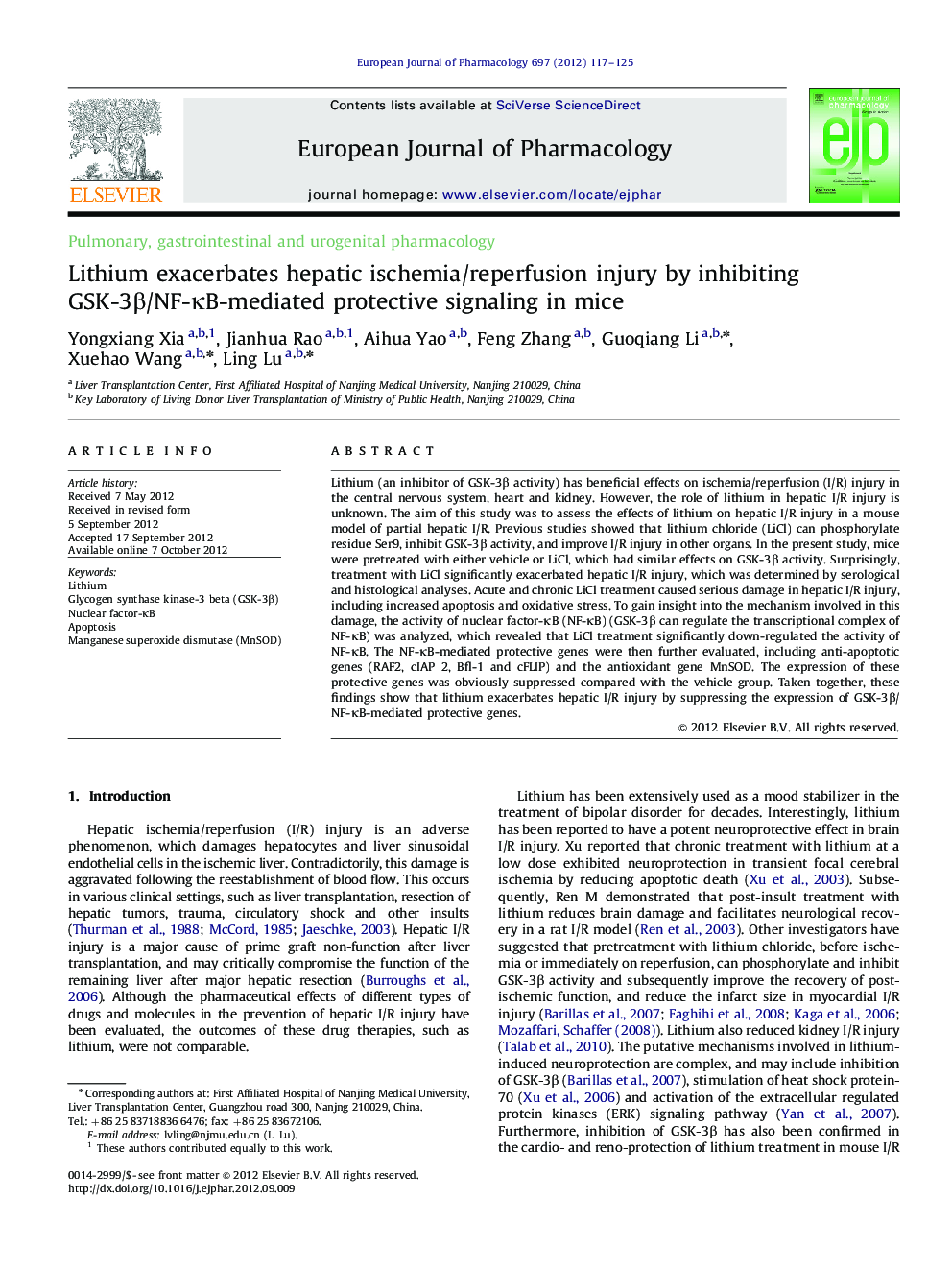| Article ID | Journal | Published Year | Pages | File Type |
|---|---|---|---|---|
| 5829249 | European Journal of Pharmacology | 2012 | 9 Pages |
Abstract
Lithium (an inhibitor of GSK-3β activity) has beneficial effects on ischemia/reperfusion (I/R) injury in the central nervous system, heart and kidney. However, the role of lithium in hepatic I/R injury is unknown. The aim of this study was to assess the effects of lithium on hepatic I/R injury in a mouse model of partial hepatic I/R. Previous studies showed that lithium chloride (LiCl) can phosphorylate residue Ser9, inhibit GSK-3β activity, and improve I/R injury in other organs. In the present study, mice were pretreated with either vehicle or LiCl, which had similar effects on GSK-3β activity. Surprisingly, treatment with LiCl significantly exacerbated hepatic I/R injury, which was determined by serological and histological analyses. Acute and chronic LiCl treatment caused serious damage in hepatic I/R injury, including increased apoptosis and oxidative stress. To gain insight into the mechanism involved in this damage, the activity of nuclear factor-κB (NF-κB) (GSK-3β can regulate the transcriptional complex of NF-κB) was analyzed, which revealed that LiCl treatment significantly down-regulated the activity of NF-κB. The NF-κB-mediated protective genes were then further evaluated, including anti-apoptotic genes (RAF2, cIAP 2, Bfl-1 and cFLIP) and the antioxidant gene MnSOD. The expression of these protective genes was obviously suppressed compared with the vehicle group. Taken together, these findings show that lithium exacerbates hepatic I/R injury by suppressing the expression of GSK-3β/NF-κB-mediated protective genes.
Related Topics
Life Sciences
Neuroscience
Cellular and Molecular Neuroscience
Authors
Yongxiang Xia, Jianhua Rao, Aihua Yao, Feng Zhang, Guoqiang Li, Xuehao Wang, Ling Lu,
